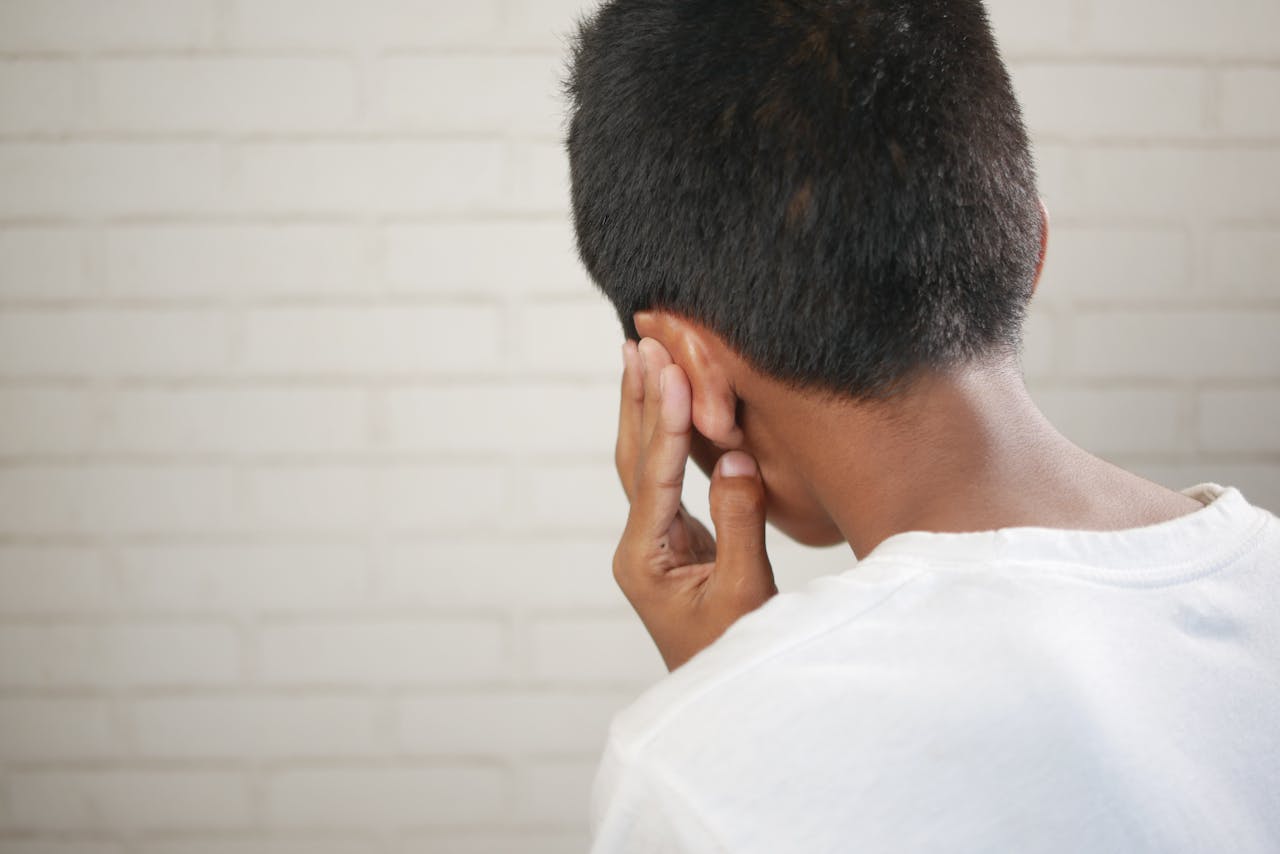Struggling with sharp ear pain every time you swallow? Discover the common causes and find fast relief with these 12 medically-backed home remedies. Learn exactly when it’s time to see a doctor.
Table of Contents
Why Does My Ear Hurt When I Swallow? Understanding the Connection
Experiencing a sharp, nagging pain in your ear every time you swallow can be unsettling. This discomfort often stems from issues in the throat or sinuses because the ear, nose, and throat are intricately connected by the Eustachian tube. This tube regulates pressure in your middle ear. When you have a condition like a sore throat, cold, or sinus infection, the inflammation and fluid can block this tube, creating pressure and pain that intensifies when you swallow.
This article will guide you through the most common causes and provide effective home remedies to soothe the pain. We’ll also cover the critical signs that mean you should see a doctor immediately.
Common Causes of Ear Pain When Swallowing
- Sore Throat (Pharyngitis): A viral or bacterial infection causing inflammation in the throat.
- Common Cold or Flu: Nasal congestion can block the Eustachian tube.
- Sinus Infection (Sinusitis): Inflammation of the sinuses puts pressure on the surrounding areas, including the ears.
- Tonsillitis: Swollen tonsils can create pressure and pain that radiates to the ears.
- Ear Infection (Otitis Media): An infection in the middle ear is a direct cause of ear pain.
- Earwax Buildup: Excessive earwax can cause a blockage and lead to pain and pressure.
12 Proven Home Remedies for Quick Relief
Here are some tried-and-tested remedies to manage ear pain at home.
1. Warm or Cold Compress
Applying a warm, damp washcloth or a cold pack to the affected ear for 15-20 minutes can help numb the pain and reduce inflammation. You can alternate between the two to see which provides more relief.
2. Over-the-Counter (OTC) Pain Relievers
Nonsteroidal anti-inflammatory drugs (NSAIDs) like Ibuprofen (Advil, Motrin) or Acetaminophen (Tylenol) can effectively reduce both pain and inflammation. Always follow the dosage instructions on the label.
3. Saltwater Gargle
If your ear pain is linked to a sore throat, gargling with warm salt water can help. Mix half a teaspoon of salt in a glass of warm water, gargle for 30 seconds, and spit it out. This can reduce throat inflammation and, in turn, ease ear pressure.
4. Stay Hydrated with Warm Liquids
Drinking warm, soothing liquids like herbal tea with honey, clear broth, or warm water can help soothe a sore throat and keep you hydrated, which aids the healing process.
5. Prop Up Your Head
When sleeping or resting, use extra pillows to elevate your head. This helps promote drainage from your ears and can prevent pressure from building up in the Eustachian tubes.
6. Gentle Neck Stretches
Sometimes, pressure in the ear canal can be relieved with gentle neck exercises. Slowly rotate your head from side to side and tilt your ear towards your shoulder on each side. If this causes more pain, stop immediately.
7. Use a Humidifier
Breathing in moist air can help soothe inflamed airways and relieve sinus pressure. Running a humidifier in your room, especially while you sleep, can be very beneficial.
8. Ginger’s Anti-inflammatory Power
Ginger is known for its natural anti-inflammatory properties. Drink ginger tea or apply a small amount of warmed ginger juice (mixed with a carrier oil like coconut oil) around the outer ear canal. Never put juice directly into your ear.
9. Garlic’s Natural Antibiotic Properties
Garlic has been used for centuries to fight infections. You can either chew a clove of garlic or create a gentle garlic-infused oil. To make the oil, gently warm a crushed garlic clove in two tablespoons of olive or sesame oil, strain it, and let it cool. Apply a few drops into the affected ear canal while lying on your side. (Caution: Do not use this method if you suspect a ruptured eardrum).
10. Olive Oil
A few drops of lukewarm olive oil in the ear can sometimes help soothe irritation and may assist with minor earwax issues.
11. Chewing or Yawning
The motion of chewing gum or yawning can help “pop” the Eustachian tubes, equalizing pressure and providing temporary relief.
12. Hydrogen Peroxide (Use with Caution)
A few drops of 3% hydrogen peroxide can help break up earwax. Lie on your side, add a few drops, and stay still until the bubbling stops, then tilt your head to drain it out. This should not be done if you have an ear infection or a perforated eardrum.
When to See a Doctor
Home remedies can be effective, but it’s crucial to seek medical attention if you experience any of the following:
- Severe, unbearable pain
- A high fever (above 101°F or 38°C)
- Fluid or pus draining from the ear
- Hearing loss or muffled hearing
- Symptoms that don’t improve after 2-3 days
- Dizziness or loss of balance
Disclaimer: This article provides information for educational purposes only and is not a substitute for professional medical advice. Always consult with a qualified healthcare provider for any health concerns or before starting a new treatment.
Published on May 1, 2025 and Last Updated on October 23, 2025 by: Priyank Pandey
Get real time update about this post category directly on your device, subscribe now.


